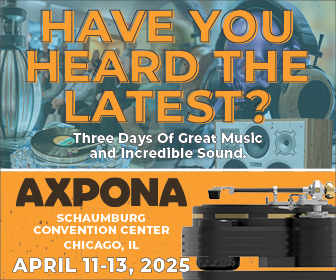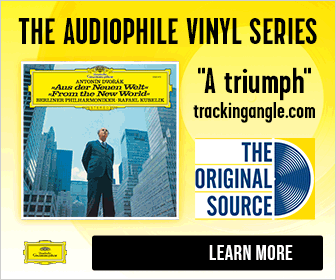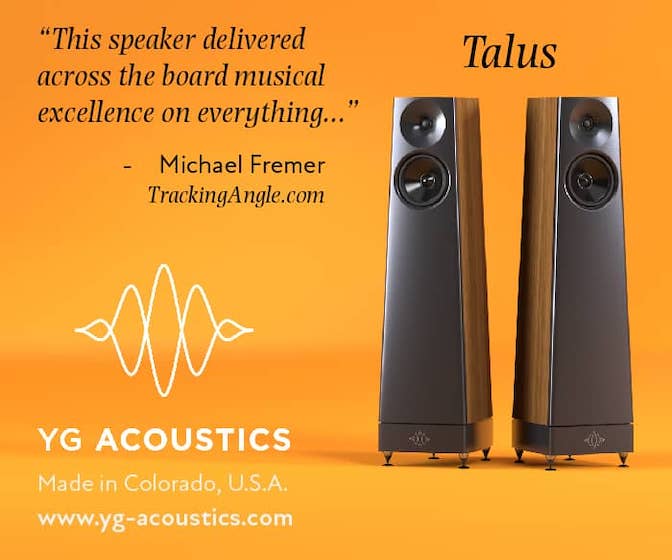Johnny Cash—The Official Concert Experience
"on tour" now— + more Cash told here as only Harvey the K. can do it
September 3rd marked the 20th anniversary of the physical passing of Johnny Cash due to complications from diabetes. Several events and products acknowledge his ongoing legacy.
A new live experience starring Johnny Cash launched in October. Johnny Cash — The Official Concert Experience brings songs and stories from the Man in Black to the stage in a new way, using video performances, words, and stories from his ABC series The Johnny Cash Show, backed by a live band and male and female singers.
The show is produced in collaboration with Cash’s estate, and the schedule began with an October 14 show in Fayetteville, Arkansas. It’s due to visit more than 85 cities, with dates booked through to March 2024. The spectacle will project images from the series, which was filmed at the Ryman Auditorium in Nashville and ran to two seasons and 58 episodes from June, 1969 to March, 1971.
Cash is seen performing such signature songs as “Folsom Prison Blues,” “Ring of Fire,” and “I Walk the Line,” among many others, and the new show relives the stories he told of people he met along the way, and the working people whose causes he championed.
The evening features previously unseen footage and on-screen narration by Cash’s only son, John Carter Cash, and there are also excerpts from the series featuring some of Johnny’s many musical guests, such as the Statler Brothers, Carl Perkins, and June Carter Cash.
“My father’s music has resonated deeply with fans around the world,” says Carter Cash, “and we’re looking forward to bringing this music experience to cities across North America. I help narrate the evening and share some intimate stories from my father’s personal life and career in music.”
The show is produced by GEAlive, Quatro Entertainment, Maple Tree Entertainment, the Estate of Johnny Cash, John Carter Cash, and Sandbox Succession. Full dates and ticket links are at The Johnny Cash Concert Experience
Cash first made a name for himself at Sun Records and in 1958 released his sophomore album Johnny Cash Sings The Songs That Made Him Famous. This career-making album was reissued on October 13, 2023 remastered from original tapes and is available on orange vinyl.
The LP, first released on December 1, 1958, contained a series of singles that Cash recorded while signed to Sun Records from 1955 to 1958 before moving to Columbia Records. The songs on the album helped solidify Cash as a revered country outlaw: “Walk the Line,” “Train of Love,” “Don’t Make Me Go” and Next in Line.” Cash wrote eight of the 12 original tracks. Johnny and Jack Clement penned two tunes— “Ballad of a Teenage Queen” and “Guess Things Happen That Way.”
JOHNNY CASH: The Life in Lyrics, a new book released last month via publishers White Rabbitt (UK) and Voracious/Little, Brown and Company (US) is a groundbreaking collection of Johnny Cash’s iconic songs, enriched with a treasure trove of exclusive visuals, handwritten notes, and captivating ephemera, written by Cash and Carter family historian, Mark Stielper, with personal anecdotes and commentary from Cash’s son, John Carter Cash.
According to a press announcement, “this is the first time Cash’s 50 years of songwriting have been collected anywhere. The book includes the lyrics to 125 songs and the stories behind them.
“Perhaps more than any other American artist,” states the release, “he spoke to the soul of the nation as well as to the triumphs and challenges of his own life. These pages explore Cash’s range as a poet and storyteller, taking readers from his early life and first successes through periods of personal challenge, activism, and faith. The result is a profound understanding of Johnny Cash as a man and an artist, as well as the American story he helped shape.
“This is a must-have collector’s item, meticulously crafted to illuminate the life and work of Johnny Cash.
“Within its 384 pages, you will discover a captivating display of rare and previously unseen visual materials. Photographs that preserve cherished memories, handwritten notes that reveal Cash’s creative process, and a myriad of intriguing ephemera await your exploration.
“A deluxe limited collector’s edition will also be available. Enclosed in a protective slipcase debossed with foil, it includes several frameable reproductions of rare memorabilia: A never-before-published photograph of Johnny Cash performing at a private event in Knoxville, TN, in April, 1975. A reproduction of the Cash coat of arms, hand-drawn and lettered by Cash, with reflections on its meaning. A double-sided reproduction of Cash’s handwritten lyrics for ‘Flesh and Blood’ with ornamental drawings and a special note to June Carter. Plus, an access code to listen to never-before-released audio comments by Cash.”
Johnny Cash wrote 600 songs, and 125 of his compositions are displayed and examined in Johnny Cash — The Official Concert Experience
“John Carter Cash says, ‘There is no better way to know my father than to look at his written works. Whether the songs he recorded, his poetry, or material not published in his lifetime, he put his heart, blood, and spirit into everything to which he added a pen. I am blessed to see this book being released, and to know that his brilliance and life are being honored through focus on his greatest life creation, his words."
Johnny Cash is one of the most beloved and influential country music stars of all time, having composed more than 600 songs and sold more than 90 million records. He received 29 gold, platinum and multiplatinum awards for his recordings and has been inducted into the Grammy Hall of Fame, the Rock and Roll Hall of Fame, the Country Music Hall of Fame, and the Hollywood Walk of Fame.
On August 16, 1975 in Orange County, California, I interviewed Johnny Cash for the now defunct UK music weekly Melody Maker inside the Royal Inn Hotel in Anaheim. Johnny was in town in 1975 to promote his autobiography, Man In Black, and to perform a special concert for the Christian Booksellers convention.
"It covers the ups and downs of my life and music career and my problem with drugs,” underlined Cash.
“The book also contains 20 song lyrics which provide a musical guideline. The lyrics help tell the story. It was time to do the book and set the record straight. About a year ago I was approached by the publisher to write it. I spent nine months writing it and shaping it. I wrote it by hand and worked with an editor.
"It was a whole new project for me. More discipline was involved. It was my main activity for months when I got up in the morning. It was hard lookin' back through my life and trying to remember conversations and details. Remembering some of the nightmares that I had especially gettin' off drugs. I went through a total soul-searching experience lookin' back. I went through all the pain again to a certain degree,” Johnny confessed.
In our 1975 conversation, Johnny and I chatted about songs he selected for live shows.
"In concert I sing 'Sunday Morning Coming Down,’ the Kris Kristofferson tune. That's so much of me that sometimes I feel like I wrote it. There are some songs that I must write for self-expression. If a song comes along, I must acknowledge it. I've recently recorded a song 'Strawberry Shortcake.' It's about a guy who went into the Plaza hotel in New York and stole a cake. It's a novelty song. But there are some songs that I had to write like 'I Walk The Line.’
“I like to go into the studio with my own musicians and record my own songs,” Johnny reminded me in our encounter. “I’m open to other songwriters. I like to do things different in my career.”
In October 2019, Columbia Records and Legacy Recordings, the catalog division of Sony Music Entertainment, released Bob Dylan (featuring Johnny Cash) - Travelin' Thru, 1967 - 1969: The Bootleg Series Vol. 15.
The label’s announcement described the product: “Disc one of Travelin' Thru, 1967 - 1969: The Bootleg Series Vol. 15 finds Dylan in Columbia's Studio A in Nashville recording alternate versions of compositions written for John Wesley Harding (October 17 and November 6, 1967) and Nashville Skyline (February 13-14, 1969) while introducing a new song "Western Road" (a Nashville Skyline outtake). Discs two and three of Travelin' Thru are centered around Dylan's collaborations with American music icon Johnny Cash including the much sought-after Columbia Studio A sessions and on-stage performances at the Ryman Auditorium (May 1, 1969) for the recording of the premiere episode of The Johnny Cash Show (originally broadcast on ABC-TV on June 7, 1969). Disc three closes with tracks recorded on May 17, 1970 with Grammy Award-winning bluegrass banjo legend Earl Scruggs for the PBS television special, Earl Scruggs: His Family and Friends (originally aired January 1971).”
In my 1975 Melody Maker interview with Cash, I asked him about Bob Dylan.
"I became aware of Bob Dylan when the Freewheelin' album came out in 1963,” Johnny recalled.
“I thought he was one of the best country singers I had ever heard. I always felt a lot in common with him. I knew a lot about him before we had ever met. I knew he had heard and listened to country music. I heard a lot of inflections from country artists I was familiar with. I was in Las Vegas in '63 and '64 and wrote him a letter telling him how much I liked his work. I got a letter back and we developed a correspondence.
"We finally met at Newport in 1964. It was like we were two old friends. There was none of this standing back, trying to figure each other out. He's unique and original.
“I keep lookin' around as we pass the middle of the 70s and I don't see anybody come close to Bob Dylan. I respect him. Dylan is a few years younger than I am but we share a bond that hasn't diminished. I get inspiration from him."
As a teenager, in the very late fifties, Dylan, birth name Robert Allen Zimmerman, hitchhiked from Hibbing, Minnesota, to Duluth to see Cash and the Tennessee Two (Marshall Grant bass and Luther Perkins guitar) play at the Duluth amphitheater.
On February 6, 2015 Bob Dylan was honored at the 25th anniversary MusiCares 2015 Person of the Year Gala at the Los Angeles Convention Center in Los Angeles.
In his stage remarks, Dylan praised Cash.
"Johnny Cash recorded some of my songs early on, too. I met him about '63, when he was all skin and bones. He traveled long, he traveled hard, but he was a hero of mine. I heard many of his songs growing up. I knew them better than I knew my own. 'Big River,' 'I Walk the Line.' 'How High's the Water, Mama?’ I wrote 'It's Alright Ma (I'm Only Bleeding)' with that song reverberating inside my head.
"Johnny was an intense character, and he saw that people were putting me down [for] playing electric music. And he posted letters to magazines, scolding people, telling them to 'shut up and let him sing.' In Johnny Cash's world of hardcore Southern drama, that kind of thing didn't exist. Nobody told anybody what to sing or what not to sing."
Drummer and friend Jim Keltner on November 19, 1979 invited Knack drummer Bruce Gary and I to the Santa Monica Civic Auditorium in Southern California to attend Bob Dylan’s Slow Train Coming tour. Jim was in the band. I was reviewing the concert for Melody Maker.
I had a very brief backstage encounter with. Dylan. He inquired about Phil Spector. I told him I had recently done an interview with Spector for Melody Maker. Phil talked about R&B vocalists, also listing “Dion, John, Paul, Elvis, Bobby Darin, and Johnny Cash as great singers.”
Dylan then removed his sunglasses. He has blue eyes like Eva Marie Saint, Charles Bukowski, and Kris Kristofferson. Bob offered a firm handshake, and smiled, “Johnny Cash is a friend of mine.”
In Chronicles: Volume One, Dylan writes “Johnny Cash sounds like he’s at the edge of fire, or in the deep snow, or in a ghostly forest, the coolness of conscious obvious strength, full tilt and vibrant with danger…Johnny’s voice was so big, it made the world grow small…”
In the 2009 book A Heartbeat And A Guitar Johnny Cash and the Making of Bitter Tears by author Antonino D’Ambrosio, Cash business music associate Johnny Western disclosed to D’Ambrosio in an interview witnessing a Dylan and Cash exchange where Dylan admitted, “Man, I didn’t just dig you; I breathed you.”
In November 1961, Cash had stuck his head inside the Columbia Records studio when talent scout/A&R man John Hammond was producing Dylan’s debut album, Bob Dylan.
“Dylan was also grateful that Cash would constantly endorse his talents to skeptical Columbia Records executives,” Antonino underscored to me in a 2009 interview, “after the initial weak sales of his first platter, some calling it ‘Hammond’s Folly.’”
In the 2022 Bob Dylan-penned book, The Philosophy of Song, Dylan lists Cash’s “Big River,” first recorded for Sun Records, as one of his selections.
Dylan and The Band did the tune in 1967 during The Basement Tapes sessions, officially issued in 2014 on The Bootleg Series Vol. 11: The Basement Tapes Complete. Dylan and Cash then cut the Cash song, produced by Bob Johnston, at their 1969 Dylan-Cash sessions, officially issued in 2019 on The Bootleg Series Vol. 15 Travelin’ Thru, 1967-1969.
In The Philosophy of Song, Dylan lists another song written and recorded by Cash, “Don’t Take Your Guns to Town,” a single from the 1958 album The Fabulous Johnny Cash.
In 1966, Johnny Cash was concluding his own geographical relationship to the Southern California area and Los Angeles.
Before he became a living tradition, Johnny Cash spent large portions of a decade of his life near Hollywood after leaving Sun Records and Memphis, doing his first gospel LP when he signed to Columbia Records.
On August 13, 1957 at a party in California, Cash first met British-born record producer Don Law after a local television date who first touted Johnny about joining Columbia Records after Cash’s contract with Sam Phillips and Sun ended on August 1, 1958.
In August 1958 Cash and clan moved to California and he rented an apartment on Coldwater Canyon Avenue in North Hollywood.
Cash and his family later bought a ranch house from comedian/TV host Johnny Carson on Havenhurst Avenue in Encino in the San Fernando Valley. Johnny Cash Enterprises was located on Sunset Blvd. at the Crossroads of the World complex in Hollywood.
Cash did a slew of television appearances in the Southern California area in the sixties including the Compton-based and Hadley’s Furniture sponsored Town Hall Party program in 1960 that was broadcast on KTTV-TV.
In 1961 Johnny came to Pal Records on Sherman Way in Canoga Park for an autograph party.
Cash, and his pal, actor, singer and radio host, Johnny Western, along with Pat Shields, a PR guy doing promotions for Liberty Records, had a company together called Great Western Enterprises on Western Avenue in Hollywood.
In 1964 Cash recorded Bitter Tears: Ballads of the American Indian, his history of Native Americans concept album. He toured Wounded Knee, South Dakota with descendants of the survivors of the 1890 massacre, played songs from the LP at a benefit performance at Cemetery Hill for the tribe and helped the Sioux raise money for schools. This is four years before AIM, the American Indian Movement civil rights organization was founded in Minneapolis, Minnesota.
Cash sent out personal letters and copies of his 45RPM recording of folksinger Peter La Farge’s “The Ballad of Ira Hayes” on that album, after Johnny purchased a thousand of them from Columbia Records and mailed the entire batch to every radio station in the country. It eventually landed at number three on the Billboard Country Singles chart in 1964.
In February 1965, Cash performed “The Ballad of Ira Hayes” on a Los Angeles television program, The Les Crane Show.
Cash debuted “The Ballad of Ira Hayes” at his 1964 Newport Folk Festival appearance, following “I Walk the Line,” and Dylan’s “Don’t Think Twice, It’s All Right” in his set. Johnny also famously gave Bob a Martin guitar.
Dylan himself waxed “The Ballad of Ira Hayes” during 1970 sessions for New Morning that later surfaced on the 1973 Dylan album.
In the late ‘60s Cash was selling concert tickets and guesting on TV. The success of his Johnny Cash at Folsom Prison long player gave him new visibility on the pop and rock charts.
Then an American television documentary Johnny Cash! The Man, His World, His Music, directed by filmmaker Robert Elfstrom had a US TV premier in March 1969.
Johnny and June Cash, the entire Carter family, Bob Dylan, Bob Johnston, Marshall Grant, Merle Kilgore, and Bob Wooton received vital US TV exposure. This screen gem, coupled with the ’69 UK-shown Granada-TV Johnny Cash At San Quentin documentary, resulted in ABC-TV offering manager Saul Holiff on behalf of Johnny, an hour-long pilot as a 13-week summer replacement for their Saturday night variety show, The Hollywood Palace.
In June 1969, Columbia Records issued Johnny Cash at San Quentin that hit the sales charts, aided by the LP’s smash country and pop hit single “A Boy Named Sue.”
It convinced the ABC network, who then picked up his option for a full season which was conceived, developed, directed and executive produced by William Carruthers. Stan Jacobson was the producer and associate producer was Joel Stein.
Bill Carruthers had previously directed The Soupy Sales Show on station WXYZ-TV in Detroit and had directed the Ernie Kovacs game show Take a Good Look, for ABC-TV. Carruthers subsequently directed The Newlywed Game and The Dating Game.
“Dylan called my dad before he and the staff left for Nashville,” recounted Byl Carruthers, then Billy, the son of William Carruthers.
“I had gone to work with my dad that day. He had an overall deal with Screen Gems at the time, and had an office on their lot. He had said we were going to get lunch, and then his assistant beckoned him back to the office, saying it was important!
“Two full hours went by, and I had to wait. When he got off the phone, he came out and said that he had just gotten off the phone with Bob Dylan. I asked him what he was calling about, and he said that Johnny wanted Dylan to do the show. Johnny really wanted Bob to do the first episode, and told Bob that he would be in good hands with my dad, and he wouldn't have to do anything he didn't want to. My dad said Bob was ‘feeling him out’ on the phone.
“My dad was very cool about letting me hang when the musicians were there, and yes, I got to fetch coffee and stuff for Bob Dylan, in the hour or so before the taping...
“I distinctly remember Dylan having two very sedate western-style two-piece suits laid out, and he saying to my dad ‘Bill, which one of these do you think would be best?’ A few minutes later, my dad said to the assistant director, ‘I can't believe Bob asked me what he should wear!’
“The first show was a mindblower, as we all know, and the first season surprised ABC enough to pick it up. The sets were cheap, ‘cause they had no money. The production issues they faced retro-fitting the Ryman Auditorium were immense,” recollected guitarist/songwriter Carruthers, now in a roots music duo, Café R&B.
“For that year of pre-production and production, my dad and John were close. He showered my dad with gifts (among them a 1932 Martin Guitar, and a Civil War Colt Pistol -John had a pair of them with consecutive numbers. He gave my father one, and he kept one, so they'd each have one as symbol of their relationship). My dad was the executive producer and director for the first year. It was his show.”
During 1970-1971 the prime-time Cash slot was then helmed by Jacobson. A veteran of The Wayne and Shuster Show for several seasons, Jacobson had been a writer for Country Hoedown and writer/producer of the program Music Hop.
In 1966 he wrote and directed the Battle of Britain documentary for the Canadian Broadcasting Company series Telescope, and in 1967, The Legend of Johnny Cash.
The Johnny Cash Television Show series ran on ABC-TV from 1969-1971. Among the subsequent Cash-invited performers: Louis Armstrong, Bill Monroe, Dusty Springfield, Judy Collins, The Monkees, Creedence Clearwater Revival, Stevie Wonder, Tony Joe White, Homer & Jethro, the Everly Brothers, Joni Mitchell, Neil Young, Derek and The Dominos, Roger Miller, Faron Young, Charley Pride, Loretta Lynn, Marty Robbins, Mickey Newbury, Neil Diamond, Conway Twitty, Tammy Wynette, Waylon Jennings, George Jones and Doug Kershaw.
"One reason country music has expanded the way it has is that we haven't let ourselves become locked into any category. We do what we feel,” reinforced Cash in our 1975 dialogue.
Johnny gave a forum to former HUAC blacklist victim Pete Seeger who sang the anti-war song “Big Muddy,” and Canadian singer/songwriter and social activist, Buffy Saint-Marie, a member of the Cree First Nation, who did Peter La Farge’s “Custer” on the program. Cash also refused to edit the word “stoned” from Kris Kristofferson’s “Sunday Morning Coming Down.”
In his review of The Johnny Cash Show in the June 12, 1969 issue of Great Speckled Bird, the counterculture underground newspaper in Atlanta, Georgia, Gene Guerrero reviewed the ABC-TV/Screen Gems initial broadcast.
“TV CASHES IN. OCCASIONALLY, television gives the viewer a glimpse of its potential as a creative medium. Usually, as with the Smothers Brothers Show, it is a fleeting glimpse before the owners of the public airways get uptight or commercialism subverts the creativity. With the inauguration of the Johnny Cash Show, country music has finally made it to network television. One can only hope and pray that it will take a couple of seasons before these corrupting influences set in.
“Dylan sang a couple of songs off his new album including 'Girl From the North Country' which he sings with Cash. In a non-contrived way Dylan and Cash singing together remind you of two kids practicing for their first recital. In this time of super-slick entertainers, that's very refreshing.”
However, Johnny said that TV obligations of his ABC-TV series hampered his creativity.
“It cut down on my touring, it became too confining,” Cash explained in our 1975 conversation.
“We stayed in Nashville for two-thirds of the time. I really didn’t enjoy it all that much. If it was kept loose and spontaneous it could have been great. But we had to do the same song every eight or ten times before they would accept it. The show lost its feel and honesty. Consequently, I lost a lot of interest in it,” stressed Johnny.
In September 2006 a 2-disc DVD set of The Best of the Johnny Cash Show, hosted by Kris Kristofferson, was distributed by CMV/Columbia Legacy, a division of Sony BMG Music Entertainment.
The DVD restoration process was produced and directed by Michael B. Borofsky. Editor and Producer Is Christine Mitsogiorgakis. Executive Producers are Lou Robin, Cash’s longtime manager, and John Carter Cash, his son with June Carter Cash.
The four-hour DVD incorporates 66 clips integrating highlights and select performances, plus new interviews with Tennessee Three bassist Marshall Grant, Hank Williams Jr., musical arranger Bill Walker, and hairstylist Penny Lane. The show’s regulars included Johnny and June Cash, the Tennessee Three, Mother Maybelle and The Carter Sisters, Carl Perkins, and the Statler Brothers.
Most of the programs were recorded on two-inch quad videotape, a non-existent format these days, and in some cases a post-production “show master” was also available, or even joining the two together. Every master tape was baked like the audiotapes and played back on a machine to digitally process the material without tampering or colorization. The results were transferred for the final phase, and the creation of stereo mixes (where only mono recordings existed) and 5.1 Surround Sound.
Bob Dylan’s “I Threw It All Away” is the first selection on The Johnny Cash Show DVD coupled with “Girl from the North Country,” his teaming with Cash, the debut track on Nashville Skyline, recorded in February 1969.
The DVD compilation incorporates Cash’s version later on, of Dylan’s “Wanted Man,” the tune Cash and band had covered in their February 1969 San Quentin repertoire.
Cash contributed the back jacket text to Nashville Skyline which won a 1970 Grammy Award for Best Album Liner Notes.
It was in June 1967 when Columbia Records staff producer Bob Johnston replaced Don Law at the Nashville based company producing Cash. Johnston’s production acumen and label machinations on behalf of Cash in the 1968 and ’69 time period resulted in two California penitentiary location-dependent live recordings: Johnny Cash at San Quentin and Johnny Cash At Folsom Prison.
Johnston’s credits include Leonard Cohen’s Songs From a Room and Songs of Love and Hate, and Bob Dylan’s Highway 61 Revisited, Blonde On Blonde, John Wesley Harding, and Nashville Skyline. He worked on Simon & Garfunkel’s Bookends.
Johnston was born in 1932 in Hillsboro, Texas. His career began as a songwriter eventually holding a staff writing position at Elvis Presley’s Hill & Range Music and often reviewed potential Presley demos and songs earmarked for his movies in 1964 and 1965. Bob co-wrote with Charlie Daniels ‘It Hurts Me,’ the flip side of Presley’s hit “Kissin Cousins” before he joined Columbia Records in 1965.
I met Johnston and producer/label executive Jimmy Bowen in July 1978 at MCA Records on Lankershim Blvd. in Universal City when I was West Coast Director of A&R for the label.At the time Johnston was producing Joe Ely’s Down on the Drag. We went down the street to see Ely at the Palomino Club.
“When I took over Cash, he didn’t hit the country charts,” declared Johnston in a 2007 interview with me.
“Like I said on the back of the Folsom Prison album liner notes, no one for eight years would let him go there to record live until he got me, and I said, ‘let’s do it’ I picked up the phone and called Folsom and San Quentin,” Bob remembered.
“The reason the Folsom album was made first is because the Folsom warden answered first, simple as that. I got the warden, Duffy, and I handed Johnny the telephone and left. When we did Folsom there was a guy who was going to introduce Johnny on stage in front of the cons and everyone standing up.
“I said ‘bullshit!’ And told Johnny to go walk out there now! They are not even sitting down good. Walk out there and jerk your head around and say, ‘Hello. I’m Johnny Cash’ and it don’t matter what the fuck you record. And he said ‘Get outta my God damn way!’ And he didn’t usually cuss. But he pushed people away went out there and the God damn place became unglued!
“I had the engineer Neil Wilburn, did the Cash Live At Folsom Prison album with him. And he was a genius behind all that shit. I had a great thing with anybody who was a genius!
“Leonard [Cohen]was the best I’d ever heard. And Dylan was the best I’d ever heard. Simon was the best I’d ever heard and Cash was the best I’d ever heard. And all those fuckin’ people were the best I’d ever heard.”
“I’ll tell you something else I did when recording Dylan, Cash and Cohen,” emphasized Johnston. “Everybody else (at the time) was using one microphone. What I did was put a bunch of microphones all over the room and up on the ceiling. I would use the echo. I could do that as much as I wanted. I wanted it to sound better than anything else sounded ever, and I wanted it to be where everybody could hear it. And that’s the way that we did it. I always had 4 or 8 speakers all over the room and I had ‘em going. The louder I played it the better it sounded to me.
“I had Cash in the Columbia Music Row studio [February 1969] and thought it would be nice to get Dylan in there, too and I didn’t say anything to them. Cash was in the studio and Dylan came in. ‘What are you doing here?’ ‘Gonna record.’ ‘Well, I’m recording too.’
“So, they invited me to dinner, but I said ‘no thanks.’ And when they returned, I had a café set up outside with microphones and their guitars, and they came in for two hours, like a nightclub, looked at the lights, sort of smiled at each other. June Carter Cash was there. We did like 18 tracks.
“When we got through with Nashville Skyline, I helped Cash get his TV show,” Johnston reminded me.
“Cash called me a little bit later, and said, ‘Listen. I got one thing. Will you get Dylan? If I had Dylan on my show, it would be a big success. And if I don’t it will be a fuckin’ failure.’ And he said, ‘Will you get him?’ ‘And I said, ‘no.’ ‘You won’t?’ ‘No.’ ‘You won’t. Why not? ‘But I’ll ask him. But I can’t get anybody. I don’t want to get anybody.’ That’s the kind of truth I had with all of those people. Cash said, ‘Will you ask?’ ‘Yeah.’
“So, I was in Ft. Worth Texas, which was my home town, and called Dylan, and I said, ‘Man, Cash just called me and he’s got a TV show that we’ve been working on and if he’s got you, it will be a success and if he doesn’t it will be a fuckin’ failure. That’s what he told me.’ And, Dylan said, ‘well, man, I’d like to…’ ‘And I thought that’s the end of that, he’s so busy… And he said, ‘I’ve got nothing to wear.’ ‘I said, ‘I’m in Ft. Worth Texas. Let me get you a cowboy suit.’ ‘Yeah.’ ‘What size do you wear and what color?’ ‘I don’t know.’ ‘I said, don’t fuckin’ worry about it. I’ll take care of it.’
“I got him a pin stripped white one that was too long come over his wrist, and a white one that was too short. That’s how it started.”
That year, Columbia Records shipped The Johnny Cash Show, a live album, coinciding with the TV series, which was not promoted to retailers as a soundtrack. The LP is an unusual product as the Columbia label was not affiliated with the competing CBS-TV network.
I am the proud owner of a white label Columbia Records Radio Station Service Not For Sale promotional copy.
Johnny Cash in the mid-1980s found himself between record labels.
Mercury Records in Nashville snatched up the country legend after his 30- year run with the Columbia Records label. Cash subsequently released a string of six albums on Mercury in five years.
While the mid ‘80s to early ‘90s saw Cash, who was still touring heavily, a bit creatively adrift, but he never stopped making music and going into the studio. He signed a deal with Mercury Records at the urging of music business executive, Steve Popovich, after Columbia Records dropped him from the label.
Cash’s work issued from 1986 to 1991, were a diverse collection that included a notable reunion with fellow Sun Records alumni Roy Orbison, Jerry Lee Lewis and Carl Perkins, star-studded collaborations with Paul McCartney and Linda McCartney, Glen Campbell, Waylon Jennings, Emmylou Harris, Hank Williams Jr. and others, inspired takes on songs from Elvis Costello, Guy Clark and Harry Chapin, the Man in Black revisiting his classic hits, and some tunes written by Cash. Cash’s stint with Mercury has never been revisited—until now.
The albums have been remastered from the original Mercury master tapes by noted engineer Kevin Reeves at UMG Studios Nashville. The set was assembled by Grammy Award-winning producer Bill Levenson and features extensive new liner notes by veteran music journalist Scott Schinder.
Johhny Cash’s Mercury/Universal Music Enterprises during 2020 released a comprehensive new box set, The Complete Mercury Recordings 1986-1991, and a new greatest hits album, Easy Rider: The Best Of The Mercury Recordings, a newly assembled collection that compiles 24 highlights selected from Cash's Mercury catalog. Easy Rider was issued as a single CD, double LP and digital download.
The Mercury/UMe 2020 media announcement described the products.
“The Complete Mercury Recordings 1986-1991, available on 7CD or 7LP on 180-gram vinyl, collects all six albums – Class of '55: Memphis Rock & Roll Homecoming (1986), Johnny Cash Is Coming to Town (1987), Water from the Wells of Home (1988), Classic Cash: Hall of Fame Series (1988), Boom Chicka Boom (1990) and The Mystery of Life (1991), and – that Cash recorded during his Mercury tenure and presents them together for the first time in a handsome slipcase emblazoned with the distinctive bold Cash logo.”
The CD version of The Complete Mercury Recordings 1986-1991 is augmented with several rare or previously unreleased tracks and an additional 20-track disc of spare early mixes aptly titled Classic Cash: Hall Of Fame Series (Early Mixes), mastered from tapes newly discovered in the Mercury vaults.
These albums came out individually on 180-gram black vinyl, with Classic Cash: Hall Of Fame Series as a two-LP set. Cash revisits vintage classics as "I Walk the Line," "Ring of Fire," "Folsom Prison Blues," "Get Rhythm," "I Still Miss Someone" and "Sunday Morning Coming Down."
This marks the first time that Cash's Mercury era albums have been reissued.
“Cash’s debut album for Mercury, the all-star session, Class of '55: Memphis Rock & Roll Homecoming, reunited him with fellow Sun Records alumni Jerry Lee Lewis, Roy Orbison and Carl Perkins,” explained the Mercury/Ume statement. With acclaimed Memphis producer Chips Moman behind the board, the four singers tackle a mix of old and new material, including the Cash-led "I Will Rock and Roll with You" and the Presley tribute, "We Remember the King." Another Elvis ode, John Fogerty's "Big Train from Memphis," features a vocal chorus that includes Fogerty, June Carter Cash, Rick Nelson, Dave Edmunds, Dan Penn and the Judds.
“Johnny Cash Is Coming to Town reteamed Cash with the legendary producer "Cowboy" Jack Clement, who as Sun Records' house engineer had overseen many of Cash's '50s sessions and written some of his early hits. The album’s studio team includes wife June Carter Cash and her singing siblings Anita and Helen and daughter Carlene Carter, Cash’s then son-in-law Marty Stuart, and Waylon Jennings, who lends his voice to the warmly nostalgic "The Night Hank Williams Came to Town." Other highlights include rousing readings of Elvis Costello's "The Big Light.”
“With Clement producing again, the star-studded Water from the Wells of Home features guest appearances by Cash’s wife June Carter Cash and daughter Rosanne Cash, along with Glen Campbell, Jessi Colter, the Everly Brothers, Tom T. Hall, Emmylou Harris, Waylon Jennings, Paul McCartney and Linda McCartney and Hank Williams Jr. on an eclectic set of material including "That Old Wheel," a duet with Williams that became Cash's highest-charting single in over a decade.
“With Nashville musician Bob Moore producing, Boom Chicka Boom —named in honor of the trademark rhythm that Cash pioneered in the '50s—is a straightforward vehicle for Cash's talent, vision and humor. Highlights include the surreal Cash composition "A Backstage Pass," a remake of Harry Chapin’s "Cat's in the Cradle" and the poignant "Hidden Shame," which Elvis Costello wrote for Cash. The CD of Boom Chicka Boom includes seven bonus tracks not on the original album, including several B-sides and early versions and the unreleased gem "I Draw The Line."
“The Mystery of Life, again produced by Clement, emphasized Cash’s own songwriting, e.g. "The Greatest Cowboy of Them All" and "I'm An Easy Rider," while also dipping into the songbooks of Tom T. Hall and John Prine. The CD version of The Mystery of Life also includes Cash's historic collaboration with U2, "The Wanderer," that appears as an extended version previously released only on the soundtrack album of director Wim Wenders’ film Faraway, So Close.”
The Complete Mercury Recordings 1986-1991 and Easy Rider: The Best Of The Mercury Recording represent an overdue deep dive into Johnny Cash's Mercury catalog, revealing its importance as the bridge between his better-known work for other labels.
Scott Schinder in his box set liner notes touted these recordings which “stand as a notable transitional body of work, and an illuminating prelude to the full-blown creative resurgence that Cash would experience in the 1990s.”
Cash’s output for Mercury contained some nice musical undertakings around weak choices of material and the uneven album productions before his artistic renaissance and renewed popularity began with producer Rick Rubin at American Recordings.
“One song Johnny recorded during his brief spell on Mercury was ‘The Night Hank Williams Came to Town,’ volunteered Robert Hilburn in a 2014 interview we conducted. Hilburn is the author of the definitive biography, Johnny Cash: The Life. “It was co-written by Bobby Braddock, who co-wrote ‘He Stopped Loving Her Today.’
“There were also a couple of great songs John wrote while under contract to Mercury in the late 1980s/early 1990s, but he didn’t want to put them on a Mercury album because he knew they’d get lost.
“Country radio had forgotten about him by then and Mercury wasn’t promoting his albums. But he played them for Rick Rubin and Rick loved them. So, he put them on the American Recordings album: ‘Like a Soldier,’ a wonderful summation of his life and regrets,” and ‘Before My Time,’ a sweet, tender love song.
“Also, there’s a magnificent recording that many Cash fans may not know: ‘The Wanderer,’ a modern gospel tale that he recorded in Dublin with U2. It was on the Zooropa album.”
Highly recommended is the 2008 Morgan Neville and Robert Gordon-directed full-length documentary Johnny Cash’s America. It’s a comprehensive and engaging talking head film and accompanying 2-CD soundtrack set that spans Cash’s life.
Another well-received documentary 2029 documentary on Cash, directed by Thom Zimny, The Gift: The Journey of Johnny Cash premiered at SXSW in Austin, Texas. The film examined the live recording Cash and his band did in 1968 at Folsom Prison in California. That event serves as a central motif of the movie and features interviews with family and celebrated collaborators.
Country music singer, musician and actress Barbara Mandrell, who hails from Riverside, Ca. has another local link to Cash. I met her at MCA Records in when I was West Coast Director of A&R for the label around the time the company purchased ABC Records in 1979.
I talked to Barbara one evening about Johnny at a label function in Hollywood on Sunset Blvd. Cash saw her in 1960 when she was age 13 on the local LA television show Town Hall Party, which was filmed in Compton near downtown Los Angeles. Johnny and his manager were so impressed viewing her TV appearance that they arranged her first out-of-state tour on an artist package that included Patsy Cline in 1962. It was Barbara’s first airplane trip where she sat next to Cash on the flight.
When Johnny Cash died in 2003, writer Todd Everett emailed me about a 1963 Ventura College benefit Cash did for the police department, “‘cause Johnny was always getting in trouble in an area between Ventura County and Ojai California, his young girls with his first wife Vivian grew up there. And Cash purchased his father a trailer home. And if that ain’t country you can kiss my ass.”
Guitarist and songwriter Pat Di Puccio aka Pooch of Flipside Magazine fame fondly remembers another Cash-In-California moment. His 1966 anecdote further sheds light on Johnny’s deep bond he forged with his fans.
“It was around ’66, I believe, that my Big Brother of America took me to see Johnny Cash play a show with Tex Ritter at the Ventura Theater. Johnny had informed him on how to put out his solo records, and my Big Brother never failed to support Johnny by buying his records and seeing him perform. After the theater show, Johnny was scheduled to play a set of religious songs at a local church with the Carter Family and the Statler Brothers.
“The trek from Los Angeles to Ventura was quite a long one, so I kept falling asleep during the program. Afterwards, Johnny had asked my Big Brother if he and I would like to go back to his house for doughnuts, a very cool gesture. Unfortunately, my Big Brother had to get me back home, as it was a school night. I always remember that, even when Johnny was a celebrity, he still found time to connect with his fans. Of course, I do wish I’d have been able to take him up on his late- night offer,” sighed the musician.
The musical and spiritual connection Johnny Cash had with Hollywood and Los Angeles continued into the nineties and until Cash died on September 12, 2003, at age 71.
Johnny’s management for many decades was based in Southern California and his return to global attention via the chart and video success with “Hurt” occurred locally.
I interviewed Rick Rubin in 2008 for my book Canyon of Dreams The Magic and the Music of Laurel Canyon. Rubin reinforced the influence and impact the region had on Johnny.
“Johnny stayed at my house in the Hollywood Hills. I think he really loved coming to LA. We would go to the Ivy for lunch when he would come to town. We’d always have a good time and June would love shopping in LA. We always had fun when he came to L.A. We looked forward to it. ‘Hurt’ was recorded in the Hollywood Hills.
“As far as the song ‘Hurt,’ I’ve been a fan of Nine Inch Nails forever. ‘Hurt’ was on an existing Nine Inch Nails record. And in looking for songs for Johnny to do it was always about the words. And I would just try and find the words that I could imagine the mythical Man In Black feeling. I heard those words and thought, ‘This would really take on a whole new language with Johnny singing them, only because of lyrical content.’
“Johnny and I would exchange CD’s of ideas of what songs to record. I would send him a CD of 20 songs and he would send me a CD of 20 songs and we’d talk about it after. And sometimes I’d feel stronger about some songs than others but pretty much I thought would be appropriate and he’d say, ‘I think I want to do these three.’ And I can remember when I sent that CD with the Nine Inch Nails song I remember telling him, even before he heard it, ‘I feel this one particular song can really be special and really be different.’ And that was unusual for me because in the process that we do we never talk about specific songs. We never think about singles ever. It’s always a body of work, just a great body of work. But for some reason I had a feeling that this was one that would really be good. Not just that the song would be great for him to sing but by him singing it that would change the way the song was perceived. It made it a new thing. It resonated completely with him singing it.
“He said he loved it and was excited to do it. We did it in LA, not my Laurel Canyon house but my north of Sunset house in the Hollywood Hills. Johnny was there. I think we built the track first. Benmont Tench was playing keyboards, Mike Campbell is playing guitar and I believe Smokey Hormel was playing guitar. We built this track and then Johnny sang it.
“It’s fantastic and the perfect bookend for his career. For me his Sun Records are probably my favorite and for him to start with the Sun Records and with the American Records it just really felt like he came full circle. Even though the records are nothing like each other. It just felt right. He deserved to end as strong as he started.”
(Harvey Kubernik is the author of 20 books, including 2009’s Canyon Of Dreams: The Magic And The Music Of Laurel Canyon and 2014’s Turn Up The Radio! Rock, Pop and Roll In Los Angeles 1956-1972. He has also written titles on Leonard Cohen and Neil Young.
Sterling/Barnes and Noble in 2018 published Harvey and Kenneth Kubernik’s The Story Of The Band: From Big Pink To The Last Waltz. In 2021 they wrote Jimi Hendrix: Voodoo Child for Sterling/Barnes and Noble. Harvey and Kenneth are writing doing a book for 2024 publication by Insight Editions, Images That Rocked the World (The Music Photography of Ed Caraeff).
Otherworld Cottage Industries in 2020 published Harvey’s Docs That Rock, Music That Matters.
His writings are in several book anthologies, including, The Rolling Stone Book Of The Beats and Drinking With Bukowski. Harvey wrote the liner notes to the CD re-releases of Carole King’s Tapestry, The Essential Carole King, Allen Ginsberg’s Kaddish, Elvis Presley The ’68 Comeback Special, The Ramones’ End of the Century and Big Brother & the Holding Company Captured Live at The Monterey International Pop Festival.
JOHNNY CASH The Official Concert Experience To Open In October 2023 and Tour 85 Cities;
JOHNNY CASH: The Life in Lyrics To Be Published in November;
JOHNNY CASH SINGS THE SONGS THAT MADE HIM FAMOUSOCTOBER REISSUE
Johnny Cash and Harvey Kubernik 1975 Interview;
The Johnny Cash Show DVD;
The Johnny Cash/Bob Dylan Musical Relationship Interview With Record Producer Bob Johnston
Johnny Cash The Mercury Years
Harvey Kubernik and Rick Rubin Cash-centric 2008 Interview
By Harvey Kubernik Copyright 2023













































